The Wychwoods Local History Society website often receives enquiries from the wider world. Recently John Longshaw contacted the WLHS from Sussex. He said that his late father, Leslie Longshaw who died in 1990 aged 79, had left a hallmarked silver fob watch. An engraved inscription indicated that this had been awarded to Emma Pittaway for exemplary school attendance at Shipton School. He was puzzled as he could not see any connection with his family name. From here, the story continues…
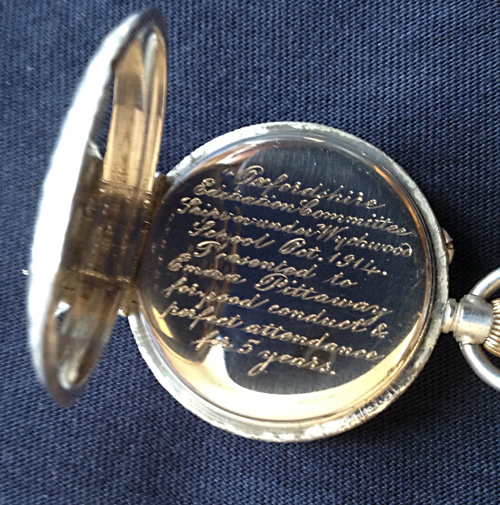
We were able to establish a connection relatively easily from the parish records. In 1900 a James Pittaway married Lucy Anne Smith (the widow of John Longshaw). Witnesses were Thomas Longshaw and Geraldine Longshaw. They had two daughters – Emma baptized in 1900 and Bertha baptized in 1907. There was no further reference to Emma but it appeared that Bertha had died in 1981 and had lived in Bowerham in Gas Lane Shipton.
John was pleased to learn this and sent us more details of his father’s connection with Shipton. How his father came to Shipton is a rather sad story, although he always claimed his childhood years in Shipton were among the happiest of his life.
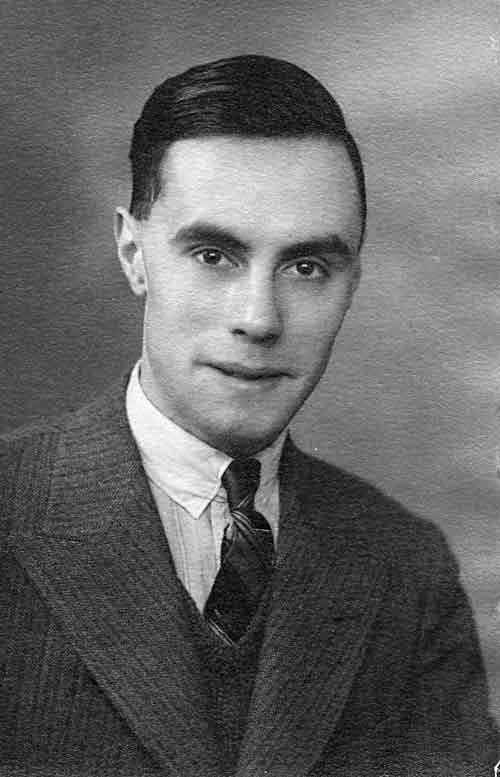
After the birth of her third child, his mother was sectioned to a mental institution for a condition which today would be recognised as severe post-natal depression. The children were told she had died and Leslie was sent to live with his grandparents who lived in Leafield Road in Shipton. His brother and sister were sent to a children’s home. It was only much later in life that he received a phone call from a nursing home to say his mother was alive and he subsequently used to visit her until her death. As they say “the past is another country”.
His grandfather, Thomas, was born in Shipton in 1859 and died there in 1921. He appears to have been a gardener at St Michael’s Orphanage. Leslie attended Shipton village school and made many friends there. The headmaster was John Strong, who reportedly used to measure up fields, to augment his income, for farmers at harvest time for those who had to hire contractors using traction engines and threshing machines.
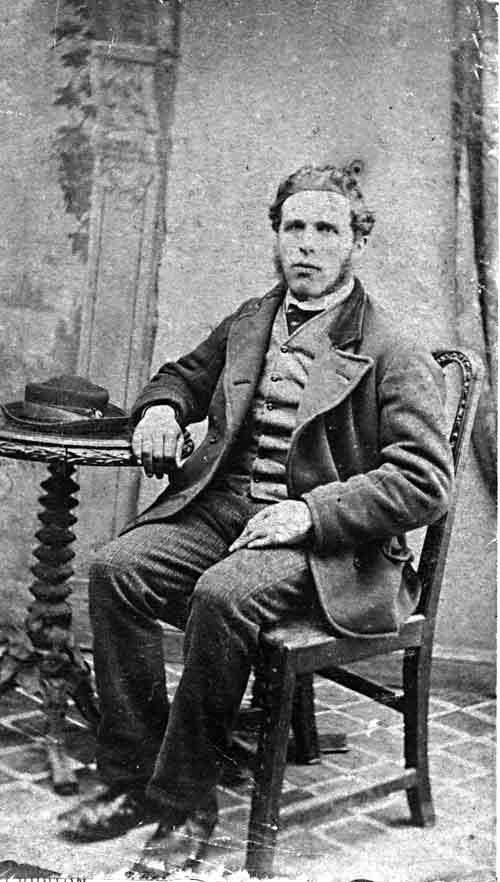
He remembered the Squire, who used to organise a Christmas dinner at Shipton Court, for the village children. Leslie was in the choir at Shipton church and a church member who was a master at Burford Grammar School taught him to read Latin. He recalled a charabanc outing to Western Super Mare organised by the Sunday School.
Leslie was also an active member of the local scout troop and went on camps using a trek cart. He recalled many events and traditions in the village some sadly now gone for ever – Guy Fawkes night, the Hospital Carnival, the Local hunt meet. He said some people celebrated the Epiphany when bonfires were built, shot guns fired in the air and his grandmother baked a special Epiphany cake. The village baker, Marky Buntin baked on a Sunday and his grandmother sometimes took her Sunday lunch to be cooked along with others in his still hot bread oven for a nominal sum. His grandmother’s cottage had no range and meals were cooked in pots over the fire.
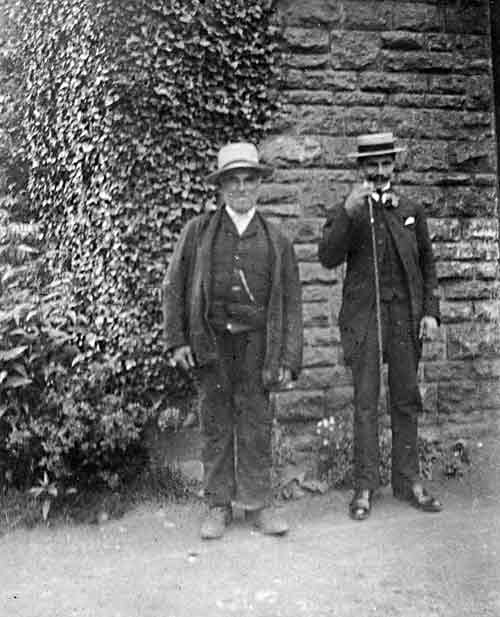
One story that he related was that his grandfather used to like to get the train to Stow on the Wold or perhaps Chipping Norton (both possible by rail in those days) on Boxing Day. He would have a few pints there and then walk back. On one occasion he was joined by John Longshaw, a relative who was a shepherd. The young Leslie went with them. He must have been less than ten years old.
On the way back a terrible blizzard started and they could hardly see the road in front of them. His grandfather wanted to take shelter but the old shepherd said that, if they did, they would not survive the night so they carried on walking. Sometimes they had to walk backwards so strong was the wind driving the snow into their faces. On the outskirts of the village they were met by the village policeman and men with lanterns. Grandmother had gone to the police house and the village police man had organised a search party. Needless to say, his grandfather received a serious ticking off.
Leslie also remembered an extremely rare sighting of the northern lights at Shipton due to freak weather conditions. A lot of the old folk thought the end of the world had come and had to be reassured by the vicar and doctor.
When he left school at fourteen he was not keen on agricultural work and his grandfather helped him gain a position working on the wooden cases for cash registers in the first till yard established just after the First World War. When he started there his job was to check and start the stationary petrol engines that powered some of the machinery. Later his father, Albert, obtained a position for him with Marshall and Snelgrove where he worked in London. Eventually he joined John Lewis and completed 40 years with the company ending up as a textile buyer.
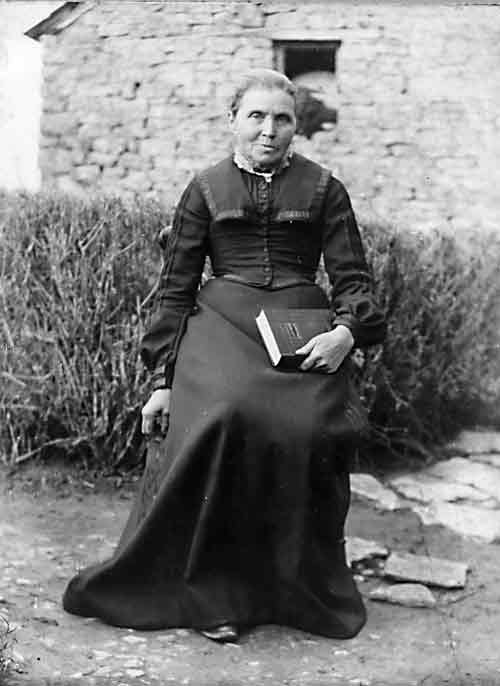
He met and married Winifred Schofield, in 1939. She was evacuated during the War to Shipton with her first child Christine. Winifred worked in the booking office at Shipton station at this time and her mother worked as a post woman in Shipton for a while.
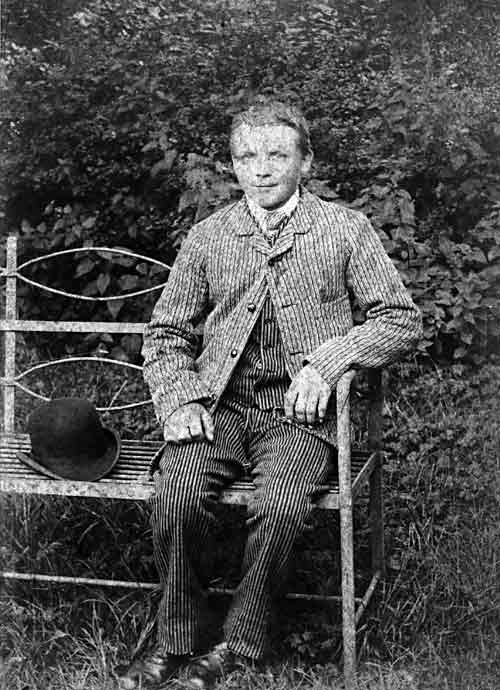
Although he lived in Surrey, Leslie kept strong links with family relatives in Shipton and regularly attended annual village ”lads” reunions in the village, staying with friends Graham and Dulcie Arundel at their bungalow Clutterdene. The reunions started in 1972 and friends came from all parts of the country. The Wychwood Magazine reported on the reunion of 1983 in its volume December 1983-January 1984. The following are notes from that report mentioning some of the participants who met in the Shipton cricket pavilion for an afternoon of nostalgia.
“Older residents of Shipton will remember Drummer Longshaw who lived in Magpie Alley; Bert Powell, who lived in Chapel Lane and who joined the Metropolitan Police in the 20’s; Jack Baylis, a nephew of Alf Baylis, who brought the Cash Till industry to Shipton, and who must have employed at least a hundred people at one time; Leslie Longshaw who spent his school days at Shipton under the great John Strong.
On leaving school, Leslie went to London and now lives in Surrey. Bill and Reg Franklin will be remembered by most people as their father was the village postman. Reg joined the Royal Air Force straight from Burford Grammar School and now lives in Twickenham. His brother Bill joined the army soon after the outbreak of war, was soon commissioned and spent most of his time in India.
It was good to see Les, Cecil and Dennis Viner there. Les and George Case are two of our one hundred percenters, having attended all twelve ‘get-togethers•. Les still lives in Shipton and George at Leafield. As always, it was great to see Reg, Bob and Dorothy Brookes. Reg was on top form, and it was like old times to see him well again.
Alf Carpenter was another of our old football team, who was there. There are not many members of that team left now, but it was that team that brought soccer success to Shipton. Charles and Bill Slatter made up the eighteen who attended our gathering”.
Leslie used to say that change was inevitable and the village was never the same as it had been in his youth. He particularly liked to go on holiday in South West France as the old stone working villages and small farms with their tiny fields and many hedge rows reminded him very much of the Cotswolds in the pre-war years.

This image is of the annual reunion of Shipton old boys who had been at school under John Strong in the 1920s. The picture was taken in 1983 in the Shipton cricket pavilion. The first reunion had been in 1972.
Left standing: Bob and Dorothy Brooks;
Left seated: Les Reed;
Third from left seated: John Longshaw (Drummer?);
Sixth from left standing: Leslie Longshaw and in front of him Bill Slatter;
Others on the photo include: Charlie Slatter, Alf Carpenter, Reg Brooks, Les, Cecil and Dennis Viner, Bill and Reg Franklin, Jack Baylis, Bert Powell, Les Case and George Case.

